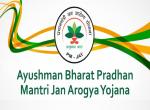While campaigning for the by-election in Hisar Arvind Kejriwal, of RTI fame, made the amazing statement that Anna Hazare was right in saying that he was above Parliament, because as a citizen he is sovereign. I tried to excuse this as election rhetoric, till the full purport of the words sank in and I realized what a justification for fascism Kejriwal had given.
First and foremost let it be clarified that the individual citizen in India is not the sovereign. Because our Constitution has been created by the people of India, sovereignty vests in the people. In the words of the Preamble to the Constitution, “We, The People of India … do hereby Adopt, Enact And Give To Ourselves This Constitution”. To emphasise, the words are “ We, The People” not “I, The People, or “I, The Citizen”, or “I, Anna Hazare”. Sovereignty, then, vests in the people collectively, but not in any individual. The unit called a citizen is governed by the Constitution and the laws framed under it, he has the fundamental right to equality before law under Article 14, but he is not above the law or the bodies constitutionally empowered to enact laws, that is, Parliament or the State Legislature.
The Constitution is a complete treatise on how a sovereign, socialist, secular, democratic republic will be structured and governed. It is not a treatise on anarchy. If, therefore, individual citizens can hold themselves above the law and the legislature, Hobb’s Social Contract would break down, there would be the law of the jungle and life would indeed be “brutish, violent and short”. The theme of the Constitution is order, but a democratic order in which the three organs of the State, the Executive, Legislature and Judiciary work in balance and harmony. The State itself is constitutionally obliged to ensure justice, liberty, equality and fraternity to all citizens, create a just social order for the promotion of the welfare of the people and to guarantee to all Indians the Fundamental Rights enshrined in Part III of the Constitution. At the same time the State, as per Article 19(2) of the Constitution, is empowered to impose, by law, reasonable restrictions on the rights granted by Article 19(1) in the interest of, among other things, “public order, decency or morality”. The Constitution, therefore, does not permit a citizen to say that he is above the law or of Parliament. At best he enjoys equality before the law and has fundamental rights which may be enjoyed freely, but not at the cost of encroaching on anyone else’s rights. Mr. Kejriwal, regardless of your contention to the contrary, Anna Hazare is not above Parliament.
Legislation is within the exclusive purview of the Legislature. Because Anna Hazare is talking of a Jan Lokpal who will have jurisdiction over the whole of India it is Parliament which will legislate on the subject. Public anger against corruption was given direction and focus by Anna Hazare and his movement. The spontaneity of the movement, however, was soon hijacked by a group of people who proclaim themselves to be the civil society representing the whole of India, but dominated by a few individuals such as Anna Hazare, Shanti Bhushan, Prashant Bhushan, Santosh Hegde, Arvind Kejriwal and Kiran Bedi. A movement which started out as an expression of the outrage of society against corruption and called upon government to take steps to end it gradually was taken over by Team Anna, converted into an agitation and then into a demand that a Jan Lokpal Bill as framed by Anna Hazare and his supporters be accepted verbatim by government, introduced accordingly in Parliament and enacted into law within a time frame provided by Anna Hazare. At this stage it became not so much the voice of the people as a dictatorial demand of an unrepresentative group calling itself the civil society, which tried to steamroll itself over Parliament and the constitutional structures for law making. The argument given was that parliamentarians themselves were corrupt and, therefore, they could not be given an option on what and how to legislate.
Because legislation is an extremely serious matter and the law which comes into force affects the lives of all citizens, the Constitution itself provides for a process for legislation. The power to legislate vests only in the legislature as created by Part V Chapter II and Part VI Chapter III of the Constitution. It does not vest in the so-called civil society. The ruling party initiates legislation, though a private member can also move a Bill. A Bill goes through three readings, the first being a debate on the introduction of the Bill, the second being a clause by clause discussion on the Bill and the third being the process of putting the Bill to vote. Prior to the introduction of the Bill it can go, in fact does go, to the Parliamentary Standing Committee for the Ministry introducing the Bill and, if Parliament so decides, it can be referred to a joint select committee for deeper examination and eliciting of public views. Team Anna virtually ordered that all these processes should be abandoned, the Bill introduced and enacted without change. Naturally no government could succumb to such a demand, backed up as it was by public agitation and a fast which threatened to the life endangering. Therefore, a drafting committee was set up in which there were government ministers, but on Anna Hazare’s side only his nominees as representing civil society were members.
Perhaps the drafting of any Bill can only be done by a small group, but the draft itself has subsequently to be given public exposure because Anna’s supporters do not represent the entire macrocosm of civil society. The main objection to what Anna Hazare was demanding was that because of the deadline prescribed by him the Bill could not be exposed to the eliciting of public opinion. This entire process is highly undemocratic and cannot be tolerated. The Indian Evidence Act which was enacted in 1872 was drafted with such care and caution that even today the only amendments are those related to technology and evidence based on technology. Otherwise not a word can be faulted. A great deal of post independent legislation is so badly drafted that it can either not be enforced or has been subjected to amendment after amendment to cover all the errors of drafting.
In the case of the Jan Lokpal Bill the obduracy of Anna Hazare, far from speeding up the process, now threatens to delay it indefinitely. Anna Hazare should know that one can legislate in haste but one will have to repent at leisure. Anna Hazare and his supporters are now active in Hisar, campaigning against the Congress on the grounds that Parliament has still not passed the Jan Lokpal Bill. In the process Arvind Kejriwal is supporting candidates whose own record of probity is not impeccable. It seems as if the objective is the passing of a Bill and not the selection of honest candidates. This is a damning condemnation of Anna Hazare and his approach to politics. In a democracy the voice of the tiniest minority cannot be muzzled. The voice of dissent has to be given space and must be heard with respect. Opposition to the Jan Lokpal Bill must be permitted and heard. Electoral campaigning which holds out a threat to the democratic process itself has no place in a democracy. Arvind Kejriwal has held out a specific threat that because the Congress party has not followed Anna Hazare’s timetable regarding the Jan Lokpal Bill, Team Anna will ensure the electoral demise of the Congress. Is this morally correct?
Hitler’s definition of the Third Reich is a classic example of what fascism means. His slogan was “Ein Reich, Ein Volk, Ein Fuehrer”, which means One Nation, One People, One Leader. Anna Hazare and his cohorts have obviously decided that there is only one nation, India, one people, Team Hazare and one leader, Anna Hazare. In Hitler’s Germany this mantra could not be questioned, there could be no dissent or disagreement and every word of the Fuehrer was law. Any one who disagreed would be liquidated and was, in fact, liquidated. In Kejriwal’s India what he and his group say must be accepted by all, there can be no voice of dissent, there can be no change in what they have proposed and any one who disagrees must be politically liquidated. This is not democracy. Kejriwal may be happy to live in such an India but one doubts whether any other Indian would agree.
One need expect nothing better from Kejriwal, who is a living example of complete contempt for laws and rules. He joined the Indian Revenue Service through a competitive examination for which he appeared of his own volition. He joined the Service voluntarily and desperately avoided any posting outside Delhi despite his liability to serve anywhere in India or abroad. He voluntarily applied for study leave and accepted the rules and conditions applying to such leave. One condition is that at the end of the sabbatical the officer is required to give a detailed report on what he did and studied during such leave. Arvind Kejriwal has not given any detailed report. Knowing full well that he had to serve for three years under bond after returning from study leave, he deliberately avoided joining a government post and kept on giving applications for one or other type of leave to avoid doing his duty. This despite the fact that he knew that no other leave, including medical leave, can be conjoined with study leave. He was given a notice about this more than two years ago. He sat over it till the present agitation, when he dramatically produced government’s letter as evidence of its vindictiveness. Anna Hazare himself has no respect for laws and rules, which is why Kejriwal can justify Hazare’s stand of being above Parliament. And these are the people who are insisting on enacting a law which they expect every Indian to accept without debate or question! God save us from such saviours.
---------------------------------------------
Published Date: 19th October, 2011









Post new comment